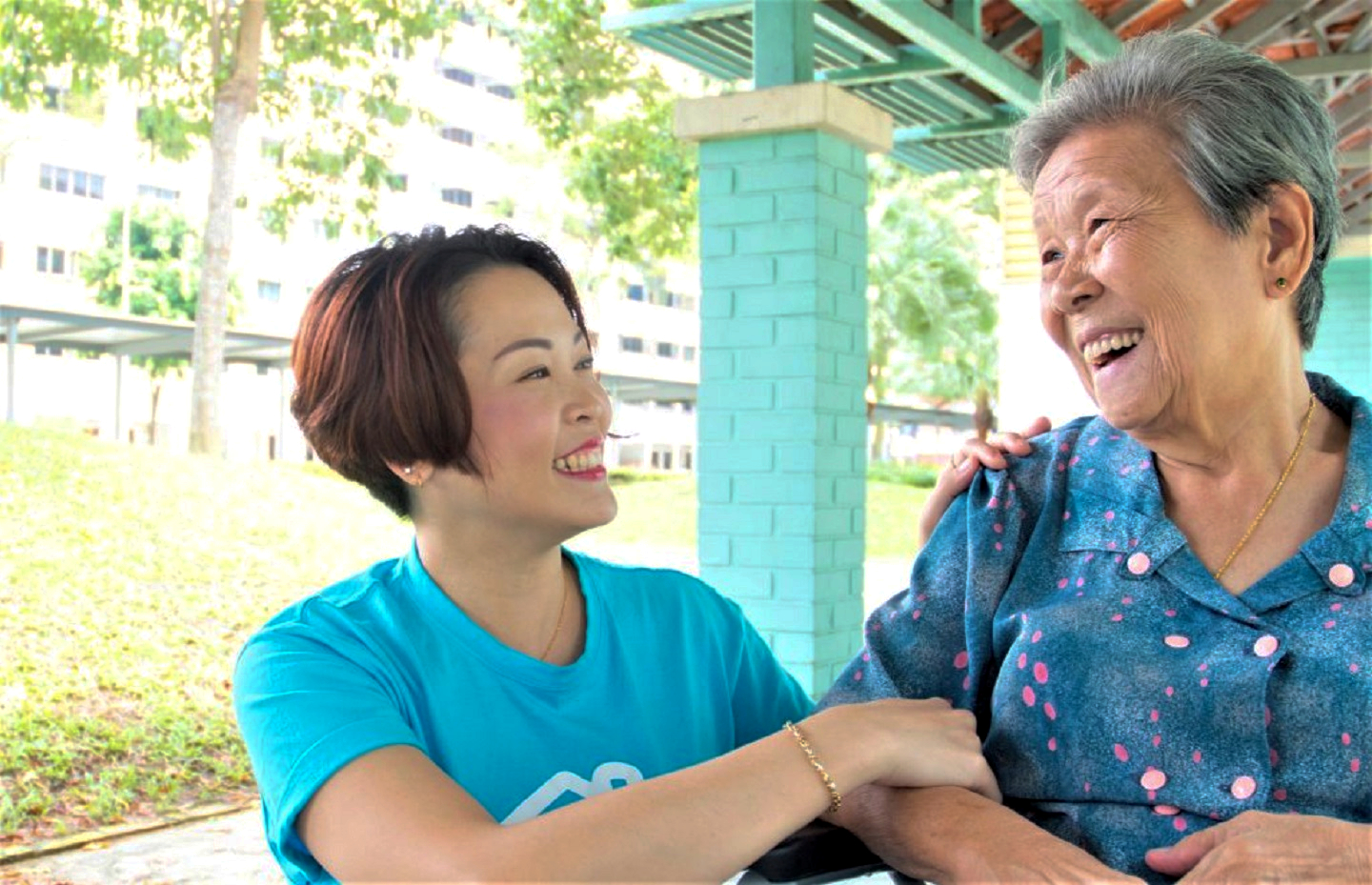
Caregiving platforms like Homage can be made accessible and affordable for all (Photo: Homage)
Have you ever phoned friends to ask if they know of anyone who can bathe an elderly relative, change his catheter, see to his physiotherapy or accompany him for a check-up post-hospitalisation?
Getting carers for seniors who need help but not full-time care is a concern more and more of us have to deal with as we head towards a greying population. Homage offers a hand here with an app that connects a pool of nurses and trained caregivers with ageing seniors in their own homes.
The idea of using technology to enable better access to eldercare services was mooted by Singaporean Gillian Tee who, after a decade of working in the US, returned home to spend more time with her mother. She soon noticed friends and relatives having problems getting quality home-care services for their parents.
Together with four friends, Tee set up Homage in Singapore in 2016 to serve that need. There is a story to that name: As a child, Tee had a Malaysian nanny whom she was very fond of. Now is her turn to pay homage to seniors and care for them.
gillian-tee-and-mum.jpg
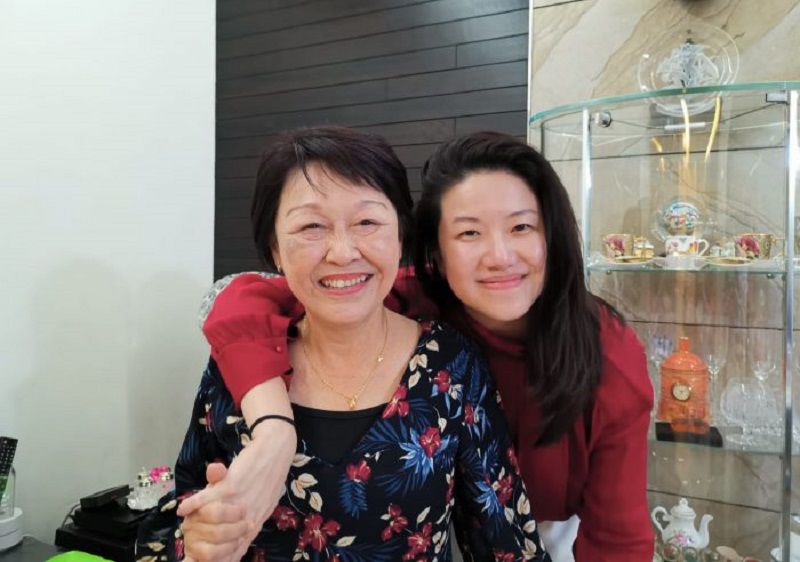
The co-founders started with less than 10 caregivers. Today, there are more than 1,000, who work closely with over 20 partners, including public and private healthcare organisations, hospitals and nursing homes, among them Tan Tock Seng Hospital, Changi General Hospital and Home Nursing Foundation.
In February 2019, Homage expanded to Malaysia, where a bigger population with the same prevalent need has seen it accelerate faster than in Singapore. Here, the start-up works with individuals and organisations such as the Alzheimer’s Disease Foundation Malaysia and Caring With You, on four main verticals: personal care covering activities of daily living; nursing care and procedures; therapy; and medical escort.
Country manager Gan Pooi Chan, better known by her initials PC, sees an urgent need to revamp the state of aged care in Malaysia, where healthcare statistics show people aged 60 and above will make up 30% of the population by 2030.
Matching experienced caregivers with seniors through smart technology enables the latter to age at home, within the community, with grace, dignity and control, Gan says.
20200708_peo_pc_gan_kym.jpg
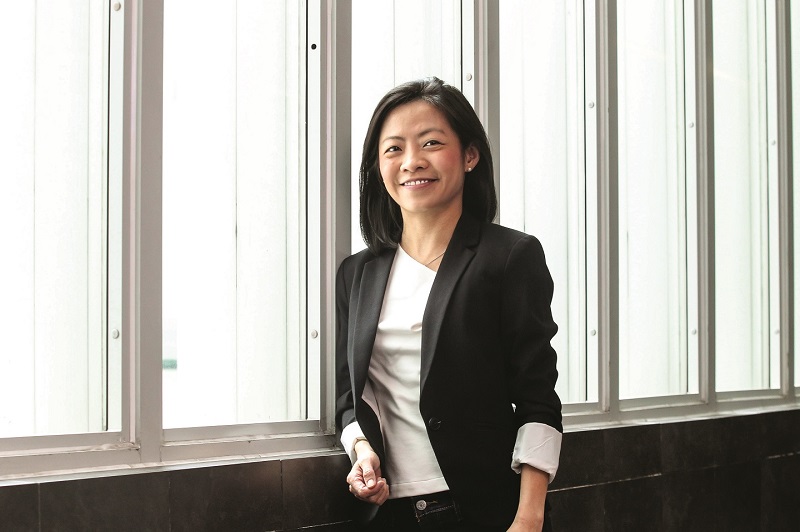
Care owners, usually offspring who do not live with their elderly parents, will engage Homage to assign someone to see to dad or mum’s personal hygiene. It could be for a couple of hours every morning, during which time the care recipient enjoys companionship and gets to engage in various activities.
Some seniors may require a nurse to dress a wound daily or regular speech therapy after a stroke. Another may need to be driven to the hospital for follow-up appointments with doctors.
The benefits are often mutual, as Homage’s experience shows. Retired nurses who are part of the business are happy to be back in the workforce, doing the things they were trained for. Those registered as caregivers gain a new source of income working with the old, besides the flexibility to mind their own home and children.
Homage currently operates in the Klang Valley and Penang and will expand to Johor Baru in the next couple of months. It does not have a bricks-and-mortar site. All its care pros — it has close to 400 serving about 300 families now — are freelancers who use its mobile app to connect with care recipients and then head over to their homes.
“The great thing about technology is that a lot of things can be done remotely,” says Gan. “With the pandemic, people have realised you don’t need a physical office.” Covid-19 has also emphasised the importance of home-care services for older folks, who face the highest risk of infection.
Screening for its care pros is stringent, she adds. Besides basic life support training for everyone, Homage takes pains to ensure they are a good fit, with the required skill sets and experience, and “the right heart”. They go to homes knowng the medical condition of the care recipient, making it easier for the latter to accept a stranger attending to them.
“Most of our care recipients with no medical conditions engage with us for companionship,” Gan observes. Condo living makes it difficult for seniors to get out and about. Social interaction — having someone to chat with, read them the news or do light exercises with in their own home — promotes wellness as they feel less lonely. As for those who need specific procedures or therapy, the added benefit of community support can boost recovery.
Homage’s rates can be as low as RM20 per hour, while nursing procedures and therapy sessions are charged according to the service rendered. The company gets a percentage of the fee. Gan estimates that caregivers can earn between RM3,500 and RM4,000 per month, with nurses getting far more.
caring-for-the-elderly.-scaled-2-980x551.jpg
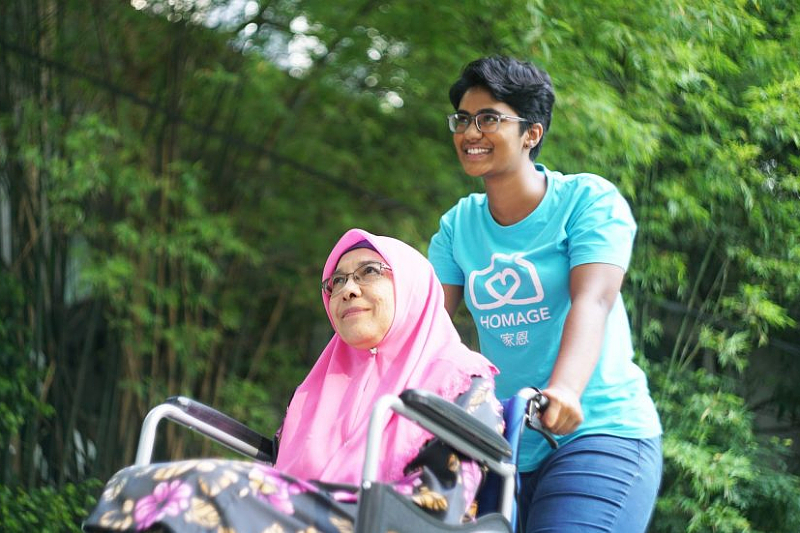
As for care owners, knowing that their parents who live alone are well taken care of by professionals brings peace of mind. Besides, they do not have to worry about the hidden costs of employing a full-time helper.
Caregiving platforms like Homage, which empower independent living, can be made accessible and affordable for all. Gan says there are plans to expand the business to other states in Malaysia and introduce new verticals in the next few years.
“We are in a business that’s not just ‘Come lah, buy 200 hours from me.’ For us, it’s need-based. We send a nurse to assess every individual and advise accordingly on the package he needs.” Visits are pre-scheduled.
Seniors recuperating from a hip fracture will need to be moved the correct way from bed to wheelchair and bathroom. Those with dementia or Alzheimer’s disease may feel agitated when left alone, so having someone around helps. A palliative care patient will require physical as well as mental care to ensure a better quality of life towards the end.
Homage’s service is also about stepping in so that care owners can have a break from the extra responsibilities placed on their shoulders. Gan believes children should not feel guilty about not being filial or not doing enough for elderly parents.
4-3-1024x690.jpg
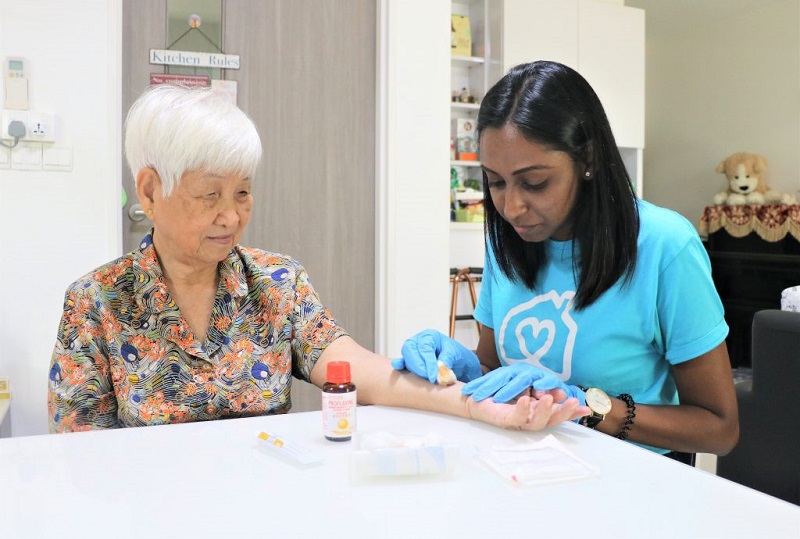
“The constant demands on family caregivers’ time, energy and resources can lead to burnout, physically and emotionally, if unchecked over time. It’s okay to get formal care and let us do the heavy lifting while they focus on their relationship. More people need to know there is an alternative like Homage, which provides a solution for families and seniors.”
In KL, its lean team of 11 is parked at a co-working space in Plaza Equatorial, where they handle marketing and partnerships and lend support to care owners who want to know what to expect or ask for frequent updates on their parents.
Deborah Yaw, a conservation biology graduate who takes charge of marketing — and everything else, Gan quips — says every member has a story to tell on what led him or her to join the business. Hers involved caring for her ailing grandmother almost single-handedly while looking for a job. “When I found this, it was like God was telling me, ‘You can do this’. I find purpose in what I’m doing.”
“Homage sits well with me. I was helping start-ups in different industries and always in this space,” says Gan, who was headhunted for her role. She is a certified accountant and project management professional.
She shares how, five years ago when her family tried to get her grandfather admitted to a private hospital after he had a heart attack, it would not accept him. “Gillian and I spoke and shared certain experiences. We were not personal friends. It just happened that the stars were aligned.”
caregiver_0407c-1.jpg
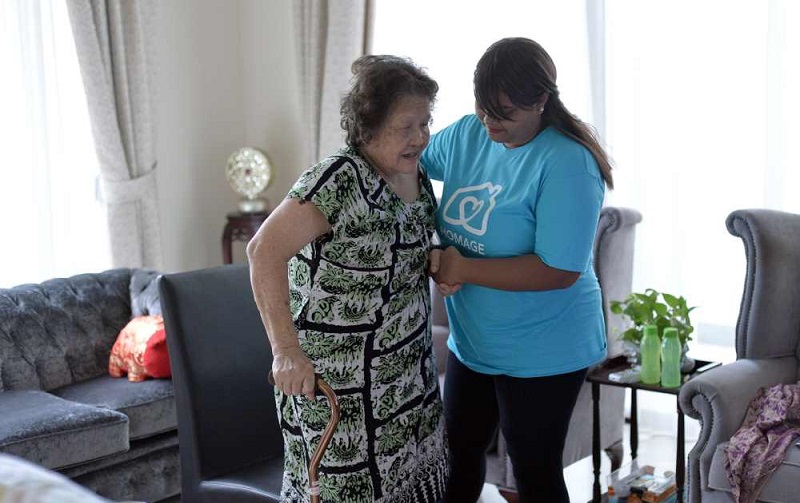
Health has an indirect link with her role in a previous company, where they worked to ensure consumers could buy insurance online. Having a huge network of insurance friends has prompted Gan to explore ways to lighten the financial burden of care owners by getting employers to extend healthcare benefits to employees’ parents to help pay for the costs involved.
She hopes to convince HR personnel and CEOs about the importance of homecare benefits for employees, and has approached the Employees Provident Fund to allow members to make withdrawals from Account Two, if there are sufficient funds, for parental care.
“We are still in talks with them. They want to make sure there is some sort of regulatory policy for healthcare. It will take time to happen, but it feels good to start somewhere. Ultimately, if I can lighten my [financial] burden without impacting the well-being of my parents, why not?” Gan says.
In Singapore, the company has just launched Homage Health, which offers teledoctor consultations using an app.
Healthcare is a continuum and Homage works in cohesion with nursing homes as well to help seniors adjust after hospitalisation, Yaw says. It is also looking to team up with accredited organisations to train its care pros so they can keep on learning and do more, Gan adds.
This article first appeared on July 20, 2020 in The Edge Malaysia.


